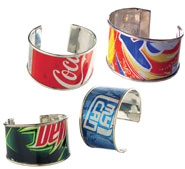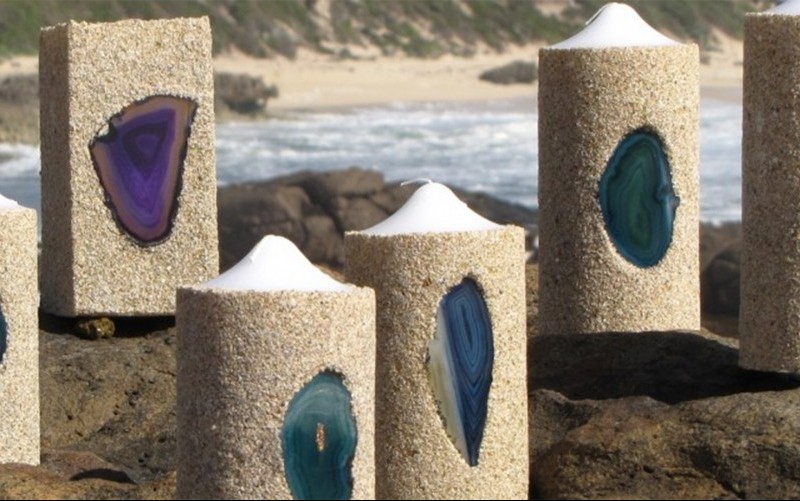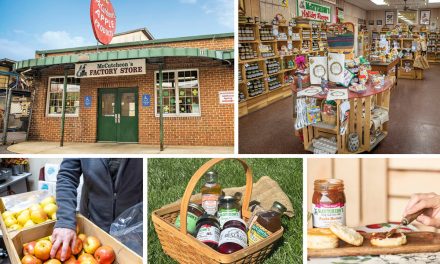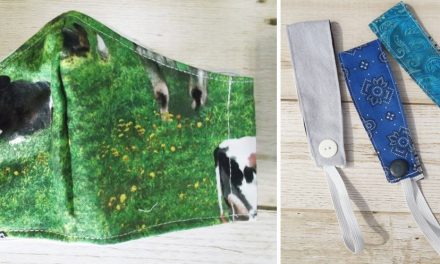
Gabrielle Kahn-Chiossone recalls a funny story of a retailer asking her what makes the organic cotton in Farmerkids Organics’ line of baby clothes organic. Was it that the sheep eat organically, the retailer asked. “She was serious,” says Kahn-Chiossone. “And then she was embarrassed when we told her that cotton is a plant, and wool comes from sheep.”
It’s unlikely the customer didn’t really know that cotton is a plant (or at least you’d hope that was the case), but the story illustrates the fact that more retailers, driven by consumer demand for accountability, are asking their manufacturers the origin and production details of the “green” products they are stocking on their shelves.
Walk into almost any shop these days and, more often than not, you’ll be greeted by a “green” product. And with good reason—green products appeal to a lot of people, and retailers are taking notice and beefing up their eco-friendly offerings.
But stocking products simply with the “green” label slapped on can be dangerous for retailers when they don’t take the time to research the product’s green claims. For example, lead-laced polypropylene bags made in China using sweatshop labor hardly seems in line with the spirit of selling eco-friendly products.
Dig Beyond the Green Surface
Do yourself and your customers a favor and scratch beyond the “green” surface to learn more about a company’s sustainability practices.
“Being ‘green’ is a way of life,” says Ron Ober, founder of Revy, a fair trade company that works with artisans in El Savador. “It’s something we do every day. Being sustainable is a longer-term goal that takes proactive work. Recycling aluminum cans is nice, but unless we work to implement reduced carbons levels in our atmosphere, our current way of life cannot be sustained. Here the emphasis is on the word ‘work.’ ”
For others, like the founders of Envirosax, environmental sustainability doesn’t end with their business practices. The founders have been living off the grid for the past eight years, utilizing many eco practices, such as obtaining all of their electricity from solar panels, hot water from solar, collecting rainwater for their water tanks, and growing their own organic vegetables and fruit.
Lily Morgan, founder of her namesake company, Lily Organics, knows exactly what goes into her skincare line because she grows them herself. “I think people buy from us because we are the only skincare company on planet Earth that is actually a USDA-certified organic grower,” says Morgan, self-titled Head Farm Hand because most of the time you’ll find her on a tractor on her farm growing the ingredients in her line. “It is like buying your food directly from the organic grower, but now you can buy your skincare that way, too.”
Night Owl Paper Goods not only uses wood to produce its cards but reclaimed cotton as well. And its cards are literally wood pieces, making them not only memorable but, according to Megan Fredrickson, custom project coordinator, also more efficient since it takes less wood to make wood veneer cards than it does to make regular paper cards.
Also, its letterpress cards are crafted from paper that is made from reclaimed cotton from the garment industry. “We’ve chosen to support this process for our paper production because it uses less energy, water and chemicals than the traditional process of using wood pulp to create paper,” adds Fredrickson. “When cotton apparel is made, there is a significant amount of extra cotton left over. Instead of allowing these remnant pieces of cotton fabric to be incinerated or simply sent to landfills, our paper supplier is collecting, cleaning and separating them into raw fibers in order to make a new premium product without having to use any additional water, chemicals or farmland.”
Give Roots to Your Messaging
Sadly, although manufacturers are working hard to create a sustainable and successful business model, most retailers don’t know the details because either the manufacturers fail to share them or retailers don’t ask. Not having those stories to share is a missed opportunity because it’s those pieces of information that connects your customers to the product in a way that can mean increased sales and customer loyalty.
Ober understands the need to educate customers and admits he goes to great lengths to provide his retail stores with material to promote the eco-friendliness of their products. “Each product has a point-of-purchase (POP) tag emphasizing the eco-friendly nature of the product,” says Ober. “In addition, we have a variety of small POP displays that actually show what the products are made of. Some of these sources included old inner-tubes, scrap leather and recycled plastic bags.”
Envirosax tries to make sure its retailers understand and share its bags’ features and benefits, including the fact that they are fully washable, and ensuring there are no heavy metals in the ink or fabric so that the bags are suitable to carry food and suitable for children to use.
But Angie Zigrossi, global marketing and public relations representative for Envirosax, admits that the best marketing tool is interacting with the product or word of mouth. “Our retailers train their staff to give all customers the spiel when they walk through the door, which a large percentage of the time results in a sale,” says Zigrossie. “Often, retailers give a bag to their staff to use, and once in use, people can’t help raving about it and wondered how they lived without it.”
Kahn-Chiossone provides its stores with small signs explaining that its clothing line is organic, chemical-free, and made by its team in the United States. “Our signs, as well as small wood displays, are always made from sustainable wood, from tree farms that are AFC-certified, where we know they keep planting more trees,” adds Kahn-Chiossone.
Eco-Me takes a more tongue-in-cheek approach to marketing its 100 percent natural cleaning line. Robin Kay Levine, founder and president, calls her collection a “family line” complete with individual names for each cleaning product. “Many of our customers refer to Bill, our all-purpose cleaner, as the new Mr. Clean!” says Levine. “Eco-Me has a message that cleaning should be fun, healthy and safe. Our family line delivers this with bright packaging and the greenest ingredients on the market. We participate with our customers through product demonstrations, sampling programs, event, shelf talkers, floor displays for line drives and more.”
Promote Fair Trade As Well
Being green definitely appeals to customers who care for the earth. Fair trade is another great way to share your support for others in the developing world.
Ober notes that while environmental sustainability is an important component to his business practices, fair trade is its main emphasis. In fact, he reminds his customers that one of the principles of fair trade is environmental sustainability. “In an effort for the global south to ‘catch up’ with the north, the environment is sometimes sacrificed,” admits Ober. “By offering a living wage while applying the other principles of fair trade, our artisans can take the environment into consideration without making economic sacrifices.”
Mata Traders works with women in India to produce its handmade apparel, new line of home decor, and women’s accessories and takes great pride when they tell their customers that the cotton used in their clothing and home decor comes from small farmers in India. “By using cotton sourced locally, we are not only supporting our women artisans who are producing our designs, but we’re also supporting small, independent farmers, so the ripple effect in the communities is that much greater,” says co-founder Michelle King.
As with any products you decide to offer, it is best to make sure you know as much as you can about them so you can share with your customers. With green products, especially, you’ll want to dig deeper so you know the reasons why they are green since more savvy customers will be asking. Engage your vendors to help with that education process by inviting them to offer demonstrations, share shelf talkers or point-of-purchase displays.
The more information you can offer your customers, the easier it will be for them to buy and feel good knowing they are helping make the world a better place through their purchasing power.
Megy Karydes is founder of World Shoppe, a fair trade wholesale importing company that works directly with South African artisans. Her company is a proud and active member of the Fair Trade Federation and Green America. To learn more, visit www.world-shoppe.com.
RESOURCES
Eco-Me
626-798-8300
www.eco-me.com
Envirosax
800-491-2533
www.envirosax.com
Farmerkids Organics
212-473-3616
www.farmerkids.com
Lily Organics
303-455-4194
www.lilyorganics.com
Mata Traders
773-944-5418
www.matatraders.com
Night Owl Paper Goods
205-868-1619
www.nightowlpapergoods.com
Revy Fair Trade Products
216-765-8117
www.revydirect.com
Two’s Company
800-896-7266
www.twoscompany.com










